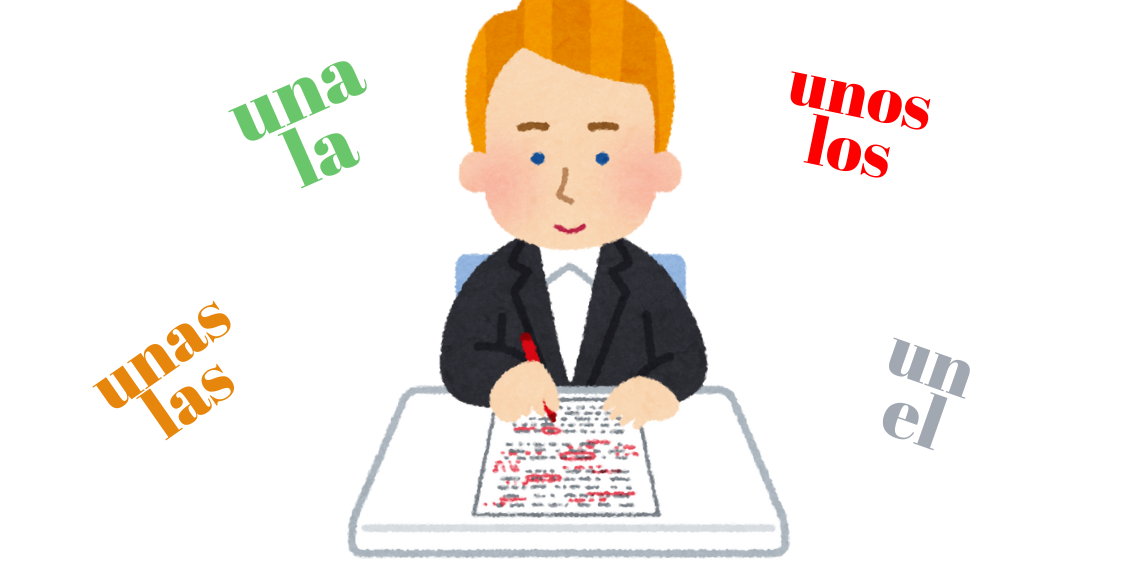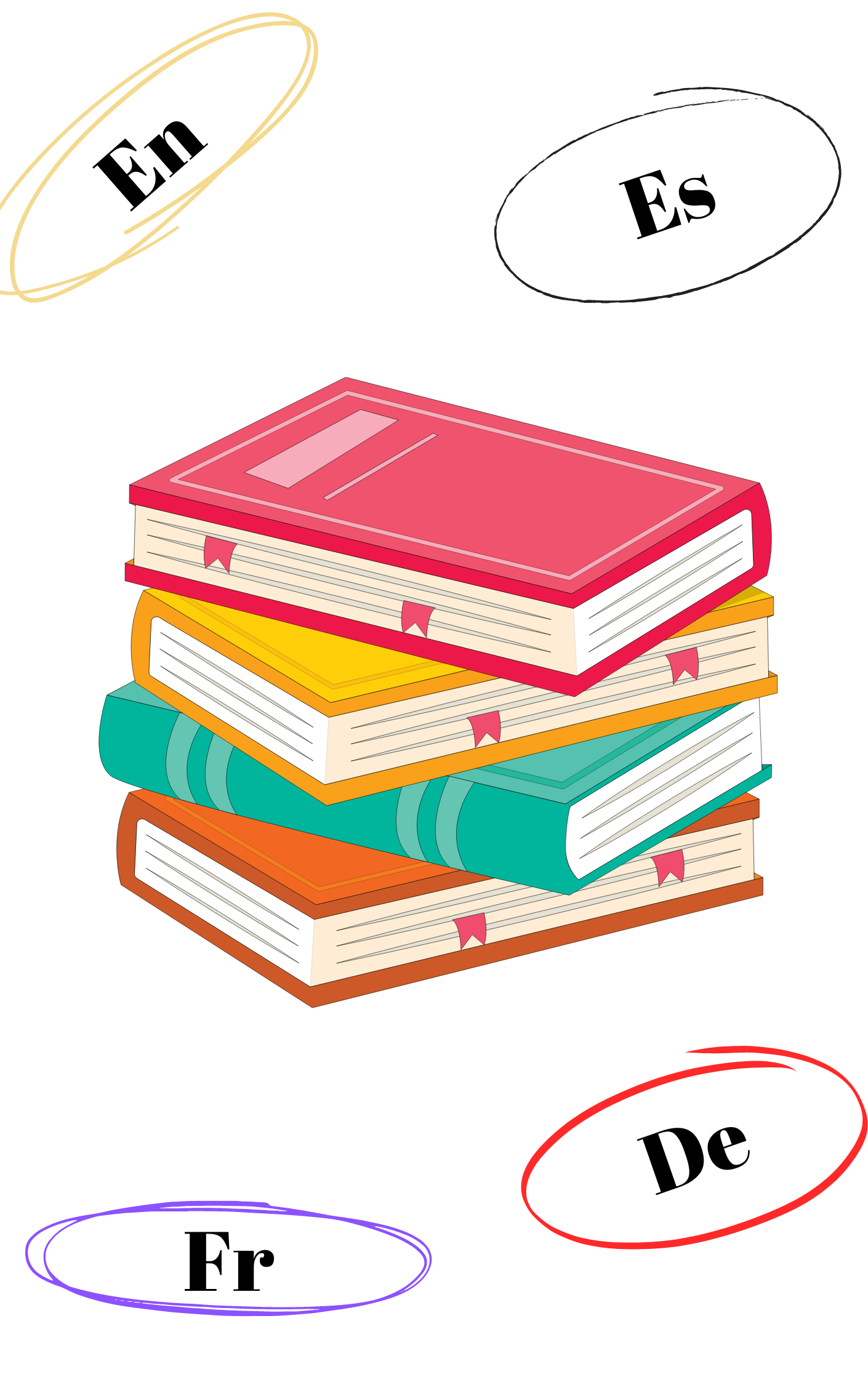¿Todos o cada? Indefinite adjectives (I)
ndefinite adjectives are words that indicate the existence or quantity of something—that is, a noun—in a vague or imprecise way. There are many of them, they are very frequently used in the Spanish language, and they can be confusing for language learners. Some of them refer to certain members of a group of nouns without specifying which ones, others encompass or negate an entire group of nouns without distinction, etc. Since there are many in Spanish, I have decided not to include all of them in a single article. Instead, in this short series of articles, we will explore which ones exist, their grammar, examples of usage, and comparisons between them. Let's go!
Todo: It indicates totality or entirety concerning the noun it accompanies. It is used to refer to the whole of something or a group. It has masculine, feminine, singular, and plural forms: todo (masculine singular), toda (feminine singular), todos (masculine plural), and todas (feminine plural). When we use this indefinite adjective, we refer to the entirety of the noun, meaning the whole noun when talking about uncountable nouns or a single unit of a countable noun, for which the singular forms are used, or the entirety of a group of nouns, without excluding any, for which the plural forms are used. Let’s look at some examples:
No cambio mi paz ni por todo el oro del mundo. (I wouldn’t trade my peace for all the gold in the world). Oro is an uncountable noun because the total amount of gold in the world is a single entity; there’s not such thing as different golds.
Estuve estudiando todo el día. (I was studying all day). Día is a countable noun because there is more than one, but this sentence refers to a specific one.
Toda la gente quiere ser feliz. (All the people want to be happy). Gente is an uncountable noun because it encompasses all human beings.
Estuve toda la tarde en la playa. (I spent the whole afternoon at the beach). Just like with día, there are many afternoons, but the sentence refers to one in particular.
Todos los estudiantes aprobaron el examen. (All the students passed the exam). When referring to a group of students, a countable noun, we use the plural form.
Todas las ciudades de este país son hermosas. (All the cities in this country are beautiful). Again, we are referring to a group of cities.
As seen in the examples, “todo” and its variants are usually accompanied by the definite article before the adjective. It is also common to use them together with possessive adjectives.
He trabajado toda mi vida. I’ve worked all my life.
¿Han venido todos tus hijos? Have all your children come?
Cada: It indicates individuality within a group, meaning it refers to each member of a group of nouns, one by one. It does not have plural or grammatical gender. It is similar to todo in that it refers to the entirety of the members of a group of nouns, but while todo emphasizes the totality, cada emphasizes the individuality of each member. Additionally, unlike todo, it is not accompanied by articles or possessives.
Visito a mis padres cada semana. (I visit my parents every week). Cada emphasizes the individual weeks, one by one.
Cada persona tiene sus propias ideas. (Each person has their own ideas). Cada refers to each individual person, one by one.
En cada esquina había una tienda. (On each corner, there was a store). Cada emphasizes the individual corners, one by one.
When accompanied by a number and a plural noun, cada indicates separation or division into groups of the noun. This usage is very common to indicate a temporal separation between two events.
Debes tomar este medicamento cada doce horas. (You should take this medication every twelve hours). For example, at 10 AM and 10 PM.
Los bebés deben comer cada 3 horas. (Babies should eat every 3 hours). For example, at 6, 9, and 12. In this case, cada divides the time into separate intervals of 3 hours each.
Algún: It refers to one or more members of a group of nouns without specifying which ones. Unlike todo, it excludes some members of the group. While it is possible to use it with uncountable nouns, it is more common to refer to countable nouns. It has masculine, feminine, singular, and plural forms: algún (masculine singular), alguna (feminine singular), algunos (masculine plural), and algunas (feminine plural). As we will see in the examples, the masculine singular form algún changes to alguno when the noun is omitted.
– ¿Tienes algún libro interesante? (Do you have any interesting book?)
– Sí, alguno tengo. (Yes, I have one/some.) It refers to a book or some books, although singular, within a group of books, but without specifying which one. This also applies to the following examples.
Alguna persona debe saber la respuesta. (Some person must know the answer).
Algunos de mis autos son muy antiguos. (Some of my cars are very old).
Algunas plantas del jardín ya han florecido. (Some plants in the garden have already bloomed).
Its use with uncountable adjectives is less frequent, but possible:
– ¿Tienes algún dinero que me puedas prestar? (Do you have any money that you can lend me?)
Ningún: It indicates the nonexistence or absence of something or someone. It has masculine and feminine forms in the singular: ningún (masculine) and ninguna (feminine). It does not have plural forms because it indicates nonexistence. As we will see in the examples, the masculine form ningún changes to ninguno when the noun is omitted.
No tengo ningún problema contigo. No tengo ninguno. (I don’t have any problem with you. I don’t have any.)
Ninguna persona debe ser discriminada. (No person should be discriminated against).
No encontré ningún error en el documento. No encontré ninguno. (I didn’t find any mistakes in the document. I didn’t find any.)
Ninguna excusa será aceptada. (No excuse will be accepted).
Otro: It indicates a change of one noun for a different one, or the addition of another noun of the same type. It has masculine, feminine, singular, and plural forms: otro (masculine singular), otra (feminine singular), otros (masculine plural), and otras (feminine plural).
¿Me das otro vaso? Este está sucio. (Can you give me another glass? This one is dirty.) Here, otro refers to a different glass, indicating a change from the one that is dirty.
¿Me das otro vaso de agua? Aún tengo sed. (Can you give me another glass of water? I’m still thirsty.) Here, otro refers to another glass of water, meaning to serve water again in the same glass.
Iremos al cine en otra ocasión. (We will go to the cinema another time). Here, otra refers to a different occasion.
Necesito otra oportunidad. (I need another chance). Here, otra refers to a new opportunity, additional to the previous ones.
In the plural, to indicate the addition of nouns, it is usually accompanied by the number that will be added.
Necesitamos otros jugadores. (We need other players). Here, otros refers to different players, indicating a change from the ones currently involved.
Necesitamos otros dos jugadores. (We need two more players). Here, otros is accompanied by the number dos to indicate the addition of two more players.
Viajando se conocen otras culturas. (By traveling, you get to know other cultures). Different cultures.
Quiero otras tres naranjas. (I want three more oranges). Three more, not three different oranges.
Cualquiera: It indicates free choice within a group, meaning members of the group of nouns are selected, but the choice is indifferent as to which ones. It has a singular form, cualquiera, and a plural form, cualesquiera. It does not have grammatical gender. In its singular form, if it precedes the noun, it becomes cualquier.
Dame cualquier libro. Dame un libro cualquiera. (Give me any book). Both phrases mean that it doesn’t matter which book it is; the choice is free and indifferent.
Its use in the plural, while it exists, is infrequent in spoken language.
Las reglas se aplican a cualesquiera situaciones. (The rules apply to any situations).
Aceptaré cualesquiera soluciones que sean razonables. (I will accept any solutions that are reasonable).
A particular use of cualquiera is with the meaning of “any person” or “anyone”.
Pregúntale a cualquiera, ese paseo es muy cansador. (Ask anyone, that walk is very tiring). Here, cualquiera means that it doesn’t matter who we ask; the person will confirm the information.
These are some examples; in future articles, we will look at more indefinite adjectives. I know it may seem like a lot of information, but they are very frequently used in the language. Here are some exercises to practice this topic. Thank you for reading!






Leave a Reply